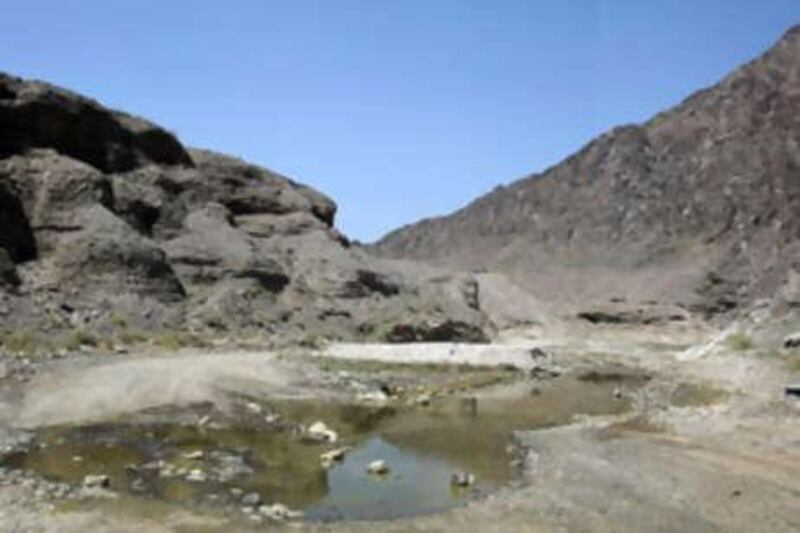Exotic fish introduced to wadis, often by people who no longer want them in their homes, are threatening to wipe out some local species. Local breeds of fish are having to compete for food with larger and more aggressive non-native species. In some cases, native species are even becoming prey. It is believed that some of the fish which have been released into the wadis are pets that have outgrown their tanks in people's homes.
Experts say certain species, such as the African Tilapia fish, have been put into the wadis in large numbers, either as game for fishing or to control the number of mosquitoes. Emma Smart, a wildlife expert, is working alongside the World Wildlife Federation (WWF) to try to save native fish while reducing the ever-growing number of aliens. Non-native terrapins and pet fish, including tilapia, have been found breeding in the wadis, mainly in Fujairah. Ms Smart discovered the problem and brought it to the attention of the WWF while studying local fish for her university doctorate.
"Tilapia are a good sporting fish, but whoever has released them has gone to a lot of effort as the wadi is very far from the road and up a dirt track," she said. She made the discovery while conducting research in Wadi Wuraya in Fujairah. "They are extremely aggressive and eat the same food as the local fish. The wadis are particularly small and we are trying to get rid of them before they take over," she said.
Tilapia is not the only invasive species in the wadis. People have released terrapins and Ms Smart has also found Coi Carp, an oriental pond fish. Tilapia come from Africa and are farmed in fish farms. "They are a great food fish as they are very cheap to buy and available everywhere," she said. "You can buy them in Carrefour. But they are one of the world's biggest problems where they have been introduced. They can survive high temperatures and have an aggressive nature.
"The local fish are about 2.5cm in length but the Tilapia can grow up to 10cm. Since they breed quickly, they compete directly with the local fish in every sense," she said. The tilapia have to fight for all the food sources, such as invertebrates, insects and algae. "If they are in a pond the size of about 10 metres square, they will decimate everything and the bigger they get, they will prey on the local fish.
"The African fish have a very high survival rate and the wadis are a perfect breeding ground for them. They are so devastating to the natural environment." Terrapins are generally found in the United States but are controlled by natural diseases and predators. However, in the UAE they face neither obstacle and can flourish. "Terrapins are sold in pet shops and when they get bigger, they can be extremely aggressive and may outgrow the small tank bought to house them. They end up in the pools after people think it has got too big and aggressive and instead of killing it they think they are doing the right thing by freeing it into a natural pond."
The alien invasion is not a problem solely for the UAE. Ms Smart has seen devastating effects in Oman and other wadis where local fish have been wiped out. It is a race against time for Ms Smart and her team, who are using every fishing trick in the book, including nets and traps, to catch the fish. "You name it, we have used it," she said. "In some wadis in Oman, the natural fish are completely wiped out. We want to nip it in the bud in this wadi and make sure people are aware.
"We would rather the public know what the consequences are and take the pet fish back to a pet shop or find another home for them. They should learn more about the pet they are about to buy, especially how big they can grow," she said. @Email:eharnan@thenational.ae





